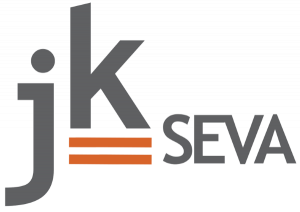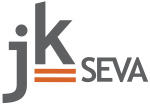Workforce Scheduling in the Hospitality Industry – Part 2/2
Description In part 2 of this two-part blog series we dive into a few pointers that can help you make the most out of your workforce scheduling system. Boost employee morale and rapport with management, so as to limit turnover and drive satisfaction levels across the board.
In part one of this blog series, we explored the advantages and benefits of an automated workforce scheduling system. Now that you have understood the purpose of workforce scheduling and its many benefits let’s take a look at some pointers that can help create the best possible workforce schedule designed to meet your hospitality industry’s specific needs.
Optimizing Workforce Scheduling
- Make Good Use of Available Features
It is important to actually make use of everything your workforce scheduling has to offer. The people in charge of scheduling need to stay on top of tasks and understand the features of the workforce scheduling in place. They can in fact compound extant problems by manually undertaking expanded spreadsheets, timetables, calendars along with employee requests.
- Let Staff Allocate Their Own Schedules
The benefits of this tactic are two-fold in that they allow managers to take a little bit of work of their hands while giving employees the benefit of scheduling their own shifts. This can be done in different batches with top employees beginning first and then working down from there. Once this has been completed managers can then be free to slot in additional shift vacancies as they see fit.
- Balance Out Skill Distribution
One half of scheduling means making sure that the right skill set is available at each shift depending on the necessities of the shift, the other half of it is ensuring that the appropriate skills are present across all shifts. This requires a bit more careful calculation and diligence which you can now enable thanks to workforce scheduling.
- Consider Historical Data
Looking into previous records of how employees functioned and which times they clocked the most overtime or at which point of time you were understaffed can help you better predict staffing needs in the future. You can be better prepared for instances that require more staff than usual by paying close attention to older track records.
- Allocated Employees Based on Skill and Talent
When you allocate staff members to a shift that they are not equipped to handle it may lead to your managers stepping in themselves to take on the task. This may affect everyone’s overall ability to complete the task, negatively impact the morale of employees and the quality of the work itself. Constructing well thought out shifts means making sure the best suited employees are in control of the right shifts.
- Create a Contingency Plan
Despite how meticulous you may be about planning out your entire workforce there are always unpredictable events that may suddenly require quick on your feet thinking in order to overcome. This is why having some kind of contingency plan in terms of staff and what they can be called upon to do may help you minimize the negative effects of unforeseen circumstances.
- Create a Channel for Communication
It is important that staff have a way of communicating their preferred work timings to you and choosing available shifts by themselves. When they are given a certain level of autonomy it can lead to employee-staff goodwill, improved quality of work, increased collaboration, employee satisfaction, lower turnover and a willingness to do their best.
- Enable Easier Access to Time Off
Even the best of employees need days off from time to time, in events such as these your management should have a clear well-established procedure that allows staff to report absences. When there is a straight forward way to let managers know that they are going to be understaffed they will have a follow up contingency plan that they can set in motion to ensure that hospitality services can continue running smoothly.
- Get to Know Your Staff Personally
Make a list of all critical staff information such as personality type, overtime restriction, work time preferences, certifications, skills, their departments and position. This kind of knowledge can create a better rapport between staff and management and make employee work satisfaction levels better than what they used to be.
If your hospitality business is exploring workforce scheduling, we would be happy to help. JK Seva we offer an expanded variety of custom designed solutions that are tailored to fit your exact expectations. We specialize in upgrades, implementations, training, custom solutions and software development. Our customer focused remote and flexible teams believe in the spirit of community when it comes to delivering comprehensive workforce management. Leverage our capabilities for true advantage. Reach out to us at JK Seva to find out more.
Subscribe to our Newsletter
We do not share your data with anybody, and only use it for its intended purpose.





